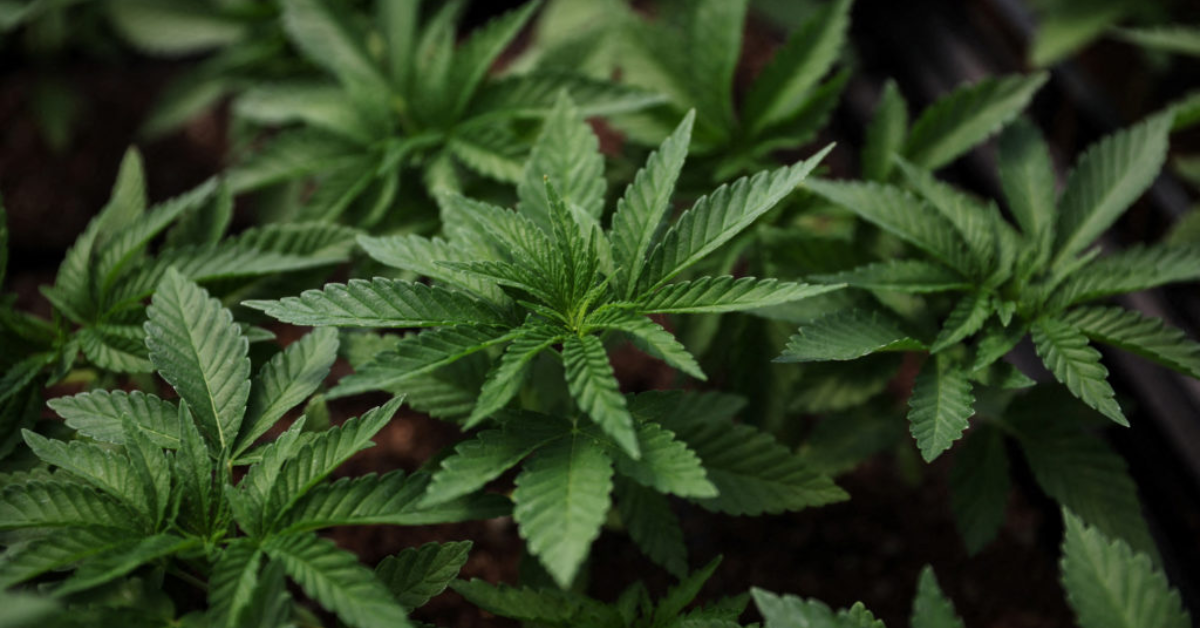The cannabis industry in Illinois is on the brink of experiencing major regulatory changes that could reshape the landscape for marijuana and related products. These changes are set to address several ongoing issues, such as the sale and regulation of intoxicating hemp products, packaging safety, and the overall fairness of the cannabis market.
New Regulations on the Horizon for the Illinois Cannabis Market
It’s hard to believe that Illinois’ legal recreational marijuana market is already celebrating its 5th anniversary. For many, it still feels like it was just yesterday that the state legalized recreational cannabis.
The date, January 1st, 2020, is forever etched in the minds of cannabis consumers who braved the extreme cold, snow, and ice to be among the first to purchase marijuana legally.
Despite the brutal weather conditions, thousands of people waited in long lines for hours to make that historic purchase. Since then, Illinois’ cannabis industry has been on a steep growth trajectory, with dispensaries popping up across the state. Over the past five years, the industry has generated millions of dollars, fueling further growth and business opportunities.
The state has quickly expanded its cannabis market as demand surged, and now, with supply keeping pace, new dispensaries are opening to meet that demand. However, while this growth is encouraging, the industry still faces several regulatory challenges.
Addressing Issues in the Cannabis Industry
Even as the cannabis market flourishes in Illinois, there are significant flaws that need to be addressed. One of the most pressing concerns is the lack of proper regulation for certain hemp-derived products, particularly those that are intoxicating.
These products, such as Delta-8 THC, have been marketed in ways that are potentially harmful to consumers. Unlike marijuana, which is tightly regulated, these hemp products have slipped through the cracks, creating confusion in both the market and the minds of consumers.
While they are legal in many areas, there are no consistent safety standards in place for these intoxicating hemp products. This has raised serious concerns about their safety and efficacy. As a result, lawmakers in Illinois are now taking action to close these gaps and ensure better protection for consumers.
What Are the New Regulations?
The new regulations proposed for Illinois’ cannabis market are designed to address these issues and create a safer, more organized industry. These changes will affect not only marijuana but also the hemp products that are becoming increasingly popular.
Here are some key changes that the new regulations aim to implement:
- Regulating Intoxicating Hemp Products: Intoxicating hemp products, like Delta-8 THC and other hemp-derived cannabinoids, will soon be subject to stricter controls. The state is looking to regulate these products much like it does with marijuana, requiring testing, labeling, and oversight to ensure they are safe for consumers.
- Banning Packaging that Imitates Popular Candy and Food Products: Many hemp products are currently packaged in ways that mimic popular candies and snacks, which could potentially attract children. These products are often designed to look like edible treats, which poses a significant risk if children mistake them for regular food items. The new regulations will require a ban on such packaging to protect children from accidental consumption.
- Banning Marketing that Appeals to Children: In addition to banning packaging that could appeal to children, the new laws will also limit how cannabis and hemp products can be marketed. There has been growing concern about marketing strategies that target minors or make cannabis products seem more appealing to younger audiences. Under the new regulations, this type of advertising will be prohibited.
- Ensuring Safe Packaging for Intoxicating Hemp Products: All intoxicating hemp products will be required to come in safe, tamper-evident, child-resistant packaging. This will help ensure that these products are kept out of the reach of children and are properly sealed to prevent accidental ingestion.
- Implementing Testing and Tax Regulations Similar to CRTA: The proposed regulations will introduce testing and tax requirements similar to those already in place for marijuana products. These tests will ensure that hemp products are accurately labeled and meet safety standards, and the tax rules will ensure that these products contribute fairly to the state’s economy.
- Selling Intoxicating Hemp Products Only at Licensed Dispensaries: One of the most significant changes is the restriction on where intoxicating hemp products can be sold. Under the new rules, these products will only be allowed to be sold at licensed cannabis dispensaries. This will prevent unregulated sellers, such as gas stations, smoke shops, or stand-alone Delta-8 shops, from selling these products, ensuring that they are only sold in controlled, safe environments.
- Age Restrictions for Hemp Products: Like marijuana, intoxicating hemp products will be subject to a strict age limit. Only individuals who are 21 years or older will be allowed to purchase these products. This age restriction will help prevent minors from accessing potentially harmful substances.
- Creating a New License for Hemp Product Processors: To streamline the process of getting hemp products into dispensaries, the state will introduce a new license for hemp product processors. This license will allow current hemp processors to sell their products directly to adult-use cannabis dispensaries. This will ensure that only high-quality, tested products make it to consumers.
Why Are These Changes Necessary?
The cannabis industry in Illinois has grown rapidly, but with that growth comes the need for improved regulations. These new rules are essential to protect both consumers and businesses.
The state’s move to regulate intoxicating hemp products more rigorously ensures that consumers know exactly what they’re buying and that the products they purchase are safe and tested.

With the increasing popularity of hemp products like Delta-8 THC, Illinois must take proactive steps to regulate them in a way that mirrors marijuana laws. This will help reduce confusion, ensure fairness, and protect people from potentially dangerous products.
These changes also show Illinois’ commitment to improving the safety and reliability of its cannabis market. While the market continues to grow, these products must be regulated in a way that benefits both consumers and dispensary owners.
The Future of Cannabis in Illinois
As Illinois’ cannabis industry continues to mature, it’s clear that the state is willing to take necessary steps to improve regulation and safety. These new rules will help create a more sustainable, transparent market where consumers can make informed decisions about the cannabis and hemp products they purchase.
While the exact timeline for these changes is still uncertain, Illinois is taking bold steps to address the emerging issues in the cannabis industry. As these regulations are rolled out, they will likely shape the future of the cannabis market and serve as a model for other states grappling with similar issues.
For those involved in the Illinois cannabis market—whether as consumers, dispensary owners, or product manufacturers—it’s important to stay informed and be ready for these upcoming changes. With the right regulation in place, Illinois can continue to grow its cannabis industry while keeping consumers safe.
Disclaimer: This article has been meticulously fact-checked by our team to ensure accuracy and uphold transparency. We strive to deliver trustworthy and dependable content to our readers.







Leave a Comment